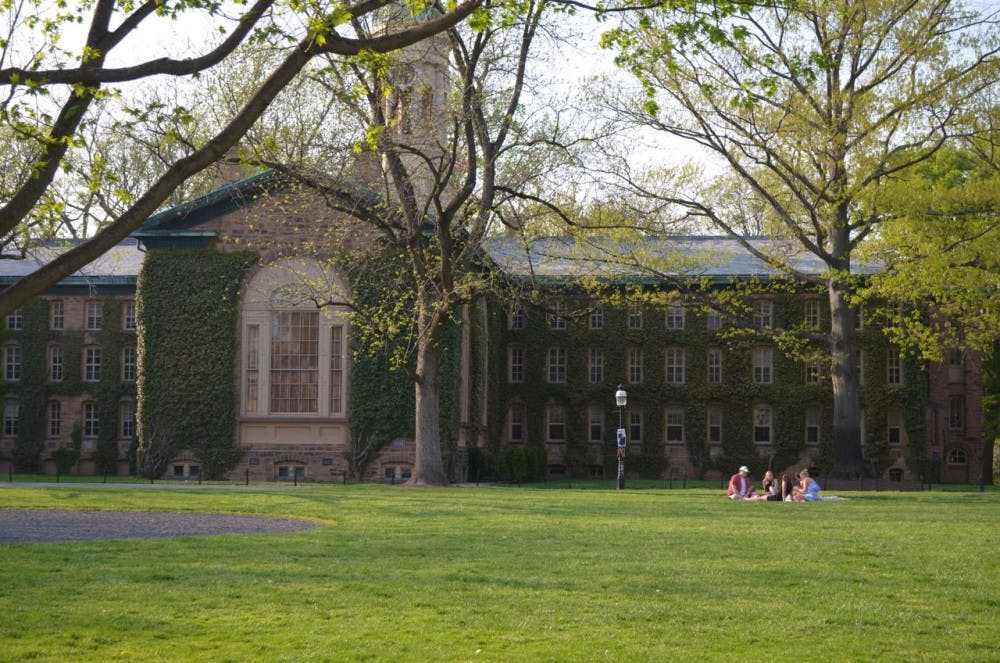I recently came across a column written by Professor Victor Fleischer from the University of San Diego arguing that universities ought to be required to spend at least eight percent of their endowments each year. Fleischer believes that such a step would result in universities spending more on financial aid and academic programs and less on fund managers. These goals, in his view, are desirable.
I want to question these goals. Certainly, universities ought to spend money on improving both financial assistance and academic programs and projects. Moreover, given the statistics Fleischer cites, it seems reasonable to claim that universities should probably be spending less money on fund managers.
To take an example from Fleischer’s column, Yale University spent about $480 million on private equity fund managers and only $170 million on “tuition assistance, fellowships, and prizes.” He claims that there’s a similar discrepancy here at Princeton.
That being said, it’s not clear that these are the only reasonable endeavors on which we might expect the University to spend part of its $26.1 billion endowment. To start, greater mental health resources would certainly benefit all students. Even those who do not make use of these resources would indirectly benefit from a culture that values mental health and puts up the money needed to fund it.
Part of the money could be used to satisfy the perennial calls for modernizing many of the dorms, including adding air conditioning in the older buildings.
These are some common sense uses of the money — perhaps even more commonsensical than $5,000 chairs. But I want to suggest that the money might be better used in some more radical programs, though given the size of our endowment, this need not be an either-or situation.
One such program is reparations. The case for reparations is a difficult one for many, with objections often grounded in the claim, “I have done nothing wrong.” Essentially, for many, it is different than if I stole a bike because you can quite obviously hold me as an individual responsible for the theft, but it is not clear to those who oppose reparations that one can be held responsible for crimes committed by one’s ancestors.
But it seems significantly less controversial to say that Princeton University owes reparations — the University’s vaunted status derives from its association with slavery. Consequently, there’s a fairly strong case for the institution that exists now to pay some form of reparations. Certainly, these might not be exclusively financial, but it should at least disgorge the benefits it has accrued through the institutions of American slavery.
Another possibility relates to the earlier goals stated above, namely, the spending on financial assistance. I want to suggest that it would be feasible for Princeton to simply eliminate its tuition. It’s not clear to me why, given how much Princeton makes on its endowment per year (about $200 million in the past year, for instance) and how much it has to fall back on, the University should not simply stop charging for its education.
On par, this might mean that Princeton spends less on its students, perhaps widening the gap that I discussed above. But this should not worry us for two reasons. First, Princeton would also be earning less from its students, which we could say is equivalent to it spending more on its students, all things considered.
Second, that gap should only be concerning because it represents the objectionable attitude elite universities take towards their students. If it widens because it is making life easier for its students, it’s hard to object to the gap. Perhaps we would object to a university spending nearly half a billion dollars a year on private equity fund managers, but the objection there isn’t to the gap — it’s to the high levels of spending independent to the gap.
Another objection one might raise to the proposal echoes presidential candidate and Mayor of South Bend, Indiana Pete Buttigieg’s objection to free college across the board. Mayor Pete argues that it would be unfair to low-income students, particularly because he believes that high-income students would be the primary beneficiaries of such a scheme. If he’s right, that concern should apply even more at a place like Princeton than at most public universities, where tuition is significantly higher.

But it’s not clear to me that he is right. Certainly, wealthier students and their families would be paying significantly less than they currently do. But it’s not clear to me that we value a system of free education, because it appropriately takes into consideration an individual’s ability to pay for it. Rather, we believe that an education is of fundamental value to a society and things of such value should not depend on an ability to pay. It is a similar reason for valuing universal healthcare or universal primary and secondary education. They are public goods, goods that should not depend on your ability to pay for them or not.
Moreover, the value of equality in tuition might also have instrumental value. In eliminating tuition at Princeton, it seems reasonable to expect that we could get more applicants from many more diverse backgrounds. This much was argued when Harvard considered this proposal a few years back. Similarly, it seems reasonable to expect more low-income students to apply for admission. The psychological barrier imposed by a sticker price of close to $70,000 would be removed, possibly encouraging many people who would otherwise be put off by that price to apply.
These are simply suggestions for what we could do at Princeton to make better use of our endowment. I am not convinced that we can take first principles and simply derive perfectly valid conclusions from them about matters like these. Part of deciding what exactly we think ought to be done with our endowment is a conversation amongst all of the members of the University’s community.
This column, while providing arguments I think are largely correct, is not meant as the final word in this discussion. In fact, it is what seems to me to only be the first word. Above all, I think it’s time for us to have an earnest discussion about our endowment. I hope to have provided a decent starting point for this discussion.
Sebastian Quiroz is a senior from Deltona, FL. He can be reached at squiroz@princeton.edu.









